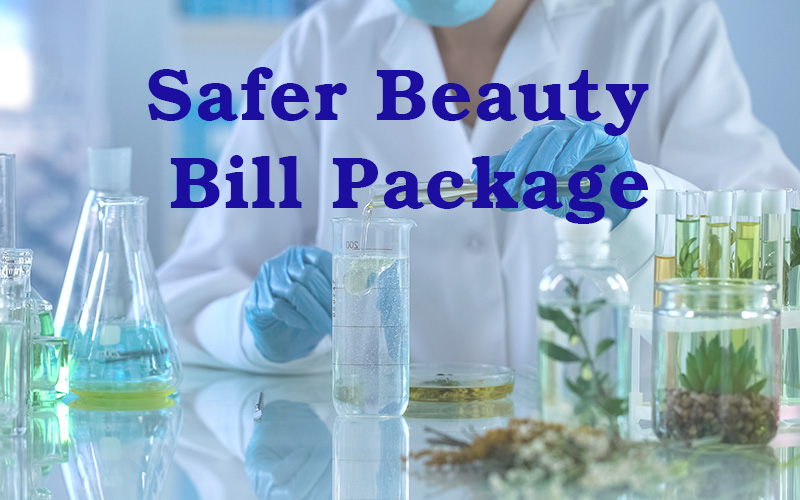Four new cosmetic bills introduced.
On 16 July 2025, Reps. Schakowsky, Fletcher, Matsui, and Pressley, along with co-sponsors Reps. Dingell, Khanna, Norton, and Tlaib, introduced 4 new cosmetic bills under the heading of the Safer Beauty Bill Package.
This isn’t the first time bills have been proposed covering the safety of cosmetics and the disclosure of ingredients or components that are–or could be–considered harmful in some way. It makes sense that they are introducing them as individual bills, rather than trying to cram it all into one bill. That way, even if one doesn’t make it, there’s a chance that another one might.
In Rep. Schakowsky’s press release, the bills were described as follows:
Note: Each bill below is linked to my post containing a detailed discussion of the bill.
H.R. 4433 – The Toxic-Free Beauty Act
(Reps. Schakowsky and Fletcher sponsored HR 4433 – The Toxic-Free Beauty Act. It bans 18 of the most toxic chemicals and two whole classes of chemicals (phthalates and formaldehyde releasing preservatives) that have been banned by the European Union and a number of states including California, Maryland, Oregon, Washington, and Vermont.
H.R. 4434 – Cosmetic Supply Chain Transparency Act
Rep. Schakowsky sponsored the Cosmetic Supply Chain Transparency Act. It requires suppliers of raw materials, ingredients, and private label products to provide full ingredient disclosure and safety data to cosmetic companies so they can make safer products.
H.R. 4435 – Cosmetic Hazardous Ingredient Right to Know Act
Reps. Schakowsky and Matsui sponsored HR 4435 – Cosmetic Hazardous Ingredient Right to Know Act. It equires product label and website disclosure of secret, unlabeled, and often toxic chemicals in our personal care products. Last Congress, this bill only required transparency for fragrance and flavor ingredients and has been expanded to cover all ingredients that can pose a health risk to consumers.
H.R. 4436 – Cosmetic Safety Protections for Communities of Color and Salon Workers
Reps. Schakowsky and Pressley sponsored HR 4436 – Cosmetic Safety Protections for Communities of Color and Salon Workers. IKt funds research, resource materials, education and outreach, and the development of safer chemicals to protect the health of women of color and salon workers, two vulnerable populations who are among the most highly exposed to toxic chemicals because of the cosmetic products marketed to them or commonly found in their workplaces. This bill also requires the FDA to regulate the safety of synthetic braids, which can contain toxic chemicals.
What will it mean?
Over the next few days, I’ll be doing a deep dive into each of these bills and their potential implications for small businesses and handcrafted soap and cosmetic makers.
The current status is that all four bills were referred to the House Committtee on Energy and Commerce. That’s the first hurdle; the committee must pass on the bills.
The reality is, though, that there is a very, very, VERY long runway for these bills to actually be passed and make it into law. In the last 15 years, we’ve had many (20? 30? more?) bills introduced and only one actually got passed. And it got passed as part of an Omnibus Spending Package (not unlike this year’s “One Big Beautiful Bill”), not as an individual bill.
According to the press release, there are over 150 businesses and organizations supporting the bill, but even that is unlikely to be enough to push it through.
Stay tuned!


Leave a Reply
You must be logged in to post a comment. Login/Register